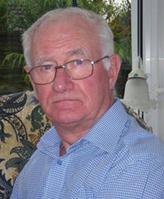Founded 1980
Chair:
Secretary:
Treasurer:
Graham Smith
Jan Thompson
Graham Mumby-Croft
John Ramwell
DONALD TRUMP ...... A view from the Psychological aspect…
The presidency of Donald Trump has been unique in the modern history of the U.S. Trump’s unorthodox strategies, his thin skin and harsh attacks on his critics (some would call it “bullying”), and his impulsivity, offer important lessons for leaders if we combine his tactics with research on what makes leaders successful and unsuccessful.
First, we have to distinguish between obtaining a leadership position, and actually being successful in a leadership position. The factors that get you into a leadership position are somewhat different than those that make you an effective leader. Trump is White, male, and confident. These attributes likely helped him get elected. Being extroverted and appearing powerful also help in attaining leadership positions. Again, Trump benefits. But here’s where it gets interesting.
Research on people’s “ideal” styles of leadership suggests hat the majority of people’s ideal leader is intelligent, hardworking, honest, and compassionate. Not surprisingly, these ideal leader qualities are those that are actually related to leader effectiveness. Trump doesn’t seem to be particularly strong in any of those areas. (A gross understatement)
However, a subset of people view “strongman” leaders — those who are pushy, manipulative, conceited, and selfish — as ideal leaders to follow. Possessing these leadership qualities is labelled “tyrannical leadership” (although that term may be too strong). President Trump fits the strongman, tyrannical prototype. This type of leader may be successful initially, but over time, followers’ support may diminish, as the leader bullies and overreaches. However, a core of loyal followers will remain. This seems to fit the bill for President Trump. A key element of effective leadership involves delegation of responsibilities to followers. This serves to free up the leader to work on important projects, but it also helps develop the followers’ own leadership capacity. A truly good leader develops followers by giving them increased responsibilities and supporting their efforts. This is a cornerstone of transformational leadership.
President Trump uses more of the “sink or swim” type of leadership, what is referred to as “management by exception.” this type of leader allows followers to take on responsibilities, but only intervenes to correct poor performance. In fact, Trump seems to allow subordinates a lot of leeway, but if they step out of line, or disagree with him, “You’re fired!”
Psychological Interest in the Trump Presidency
President Trump has defiantly flipped the presidential script, making chaos and deliberate combativeness the new normal of White House operations, manifest in hostile briefings, high rates of staff turnover, and cultural exchanges that appear aimed at dividing the nation.
There is widespread debate about the degree to which Trump should be held directly or indirectly accountable for changes in civil discourse, with some citing his rhetoric and policies as a spur to hate crimes while others claim he has been unfairly demonized by the press.
Millions of people around the country and the globe have expressed bafflement at the nature of the personality at the centre of it all, and many are alarmed by tactics and policies that appear not only erratic but often retrogressive and undermining of long-established democratic practices. Chief among them is a well-documented distortion of facts if not outright lies about everything from crowd size at the inauguration to discussions with foreign heads of state. Throughout his term, a large segment of the population sought to quell their emotional reactivity to the chaos of the presidency and to rationally navigate the civic, legal, and ideological battles that play out daily, from Twitter to the Federal courts,
Why has Trump changed ideas about leadership?
President Trump is like no other leader the nation has elected—bold, impulsive, turbulent, and divisive, with no political experience whatsoever. The traits most people value in a leader, research suggests, include intelligence, diligence, humility, honesty, and compassion. Fewer people prefer a “strongman” leadership style that encompasses selfishness, aggression, and manipulation (although this preference can diminish with time under such an administration). President Trump’s ability to frame himself as a populist, and succeed with authoritarian traits, has altered the template for leadership.
Why has President Trump changed ideas about truthfulness in public life?
The president’s falsehoods have fundamentally shifted society’s relationship with the truth. Past politicians have lied —but the Trump administration eroded the very notion that an objective truth exists. Instead, people seem to think that they’re entitled to their own truths. In addition to President Trump’s rhetoric of “fake news” and “alternative facts,” this shift is due to factors such as the creation and calcification of information silos and the evolution of the ability to believe things that can’t be seen.
• A 2016 study found that “…the racial and ethnic isolation of Whites at the zip-code level is one of the strongest predictors of Trump support.”
• A 2016 survey found that high authoritarians greatly favoured then-candidate Trump.
• An analysis estimated that the median annual income of Trump supporters was $72,000, which disputes that Trump supporters are "working-class."
The lightning-fast ascent and political invincibility of Donald Trump has left many experts baffled and wondering, “How did we get here?” Any accurate and sufficient answer to that question must not only focus on Trump himself, but also on his uniquely loyal supporters. Given their extreme devotion and unwavering admiration for their highly unpredictable and often inflammatory leader, some have turned to the field of psychology for scientific explanations based on precise quantitative data and established theoretical frameworks.
JOHN RAMWELL


